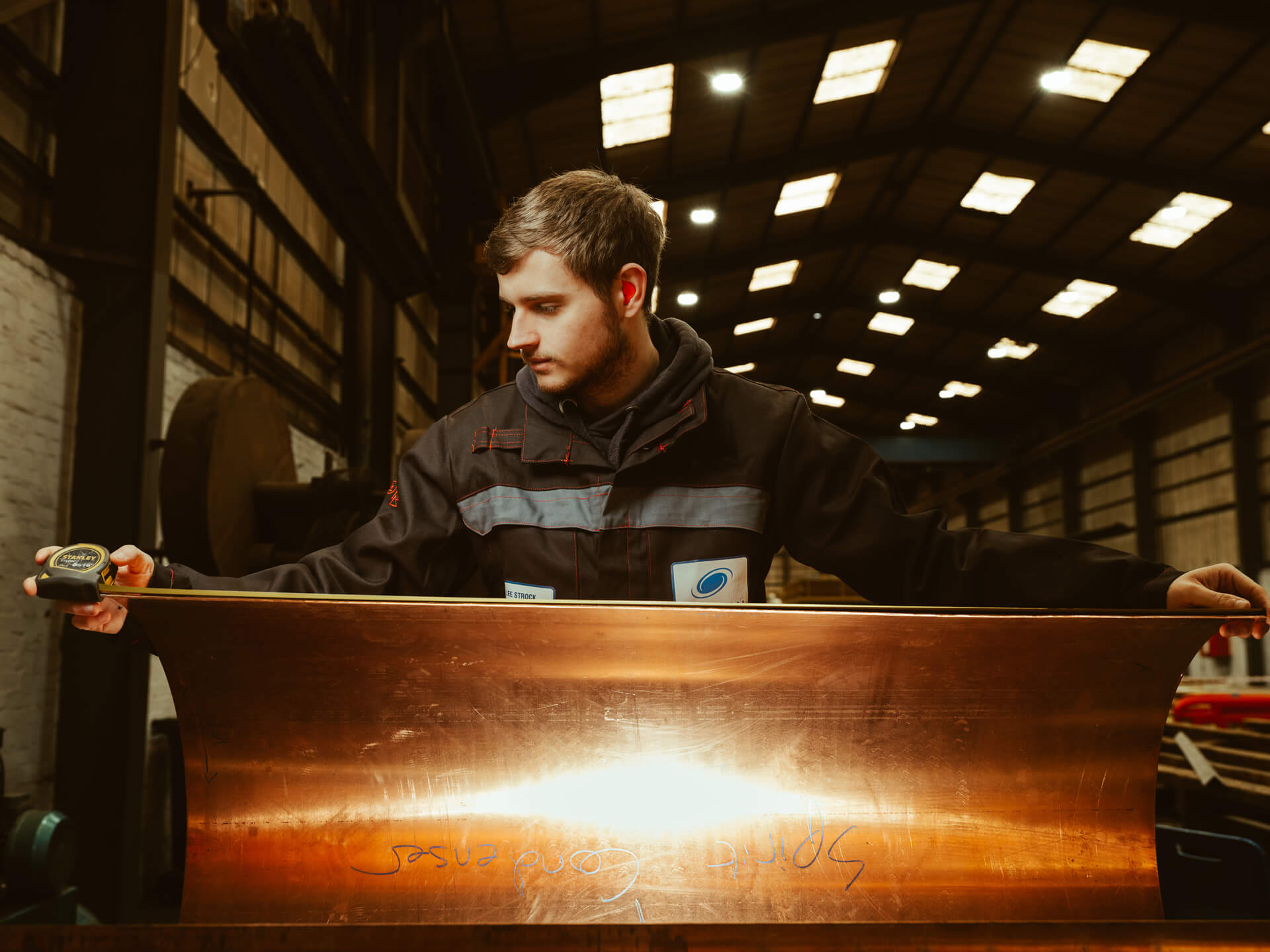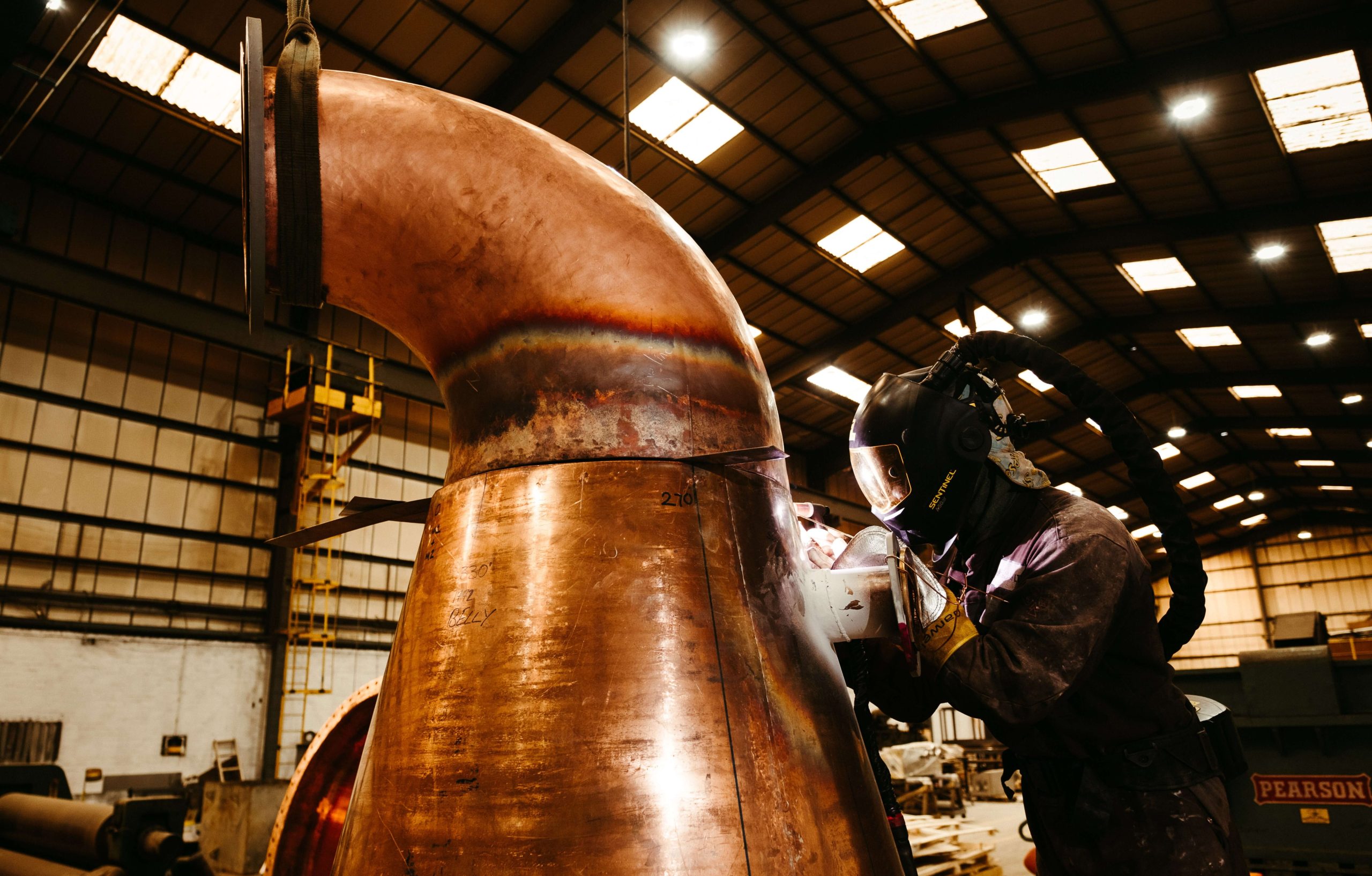Coppersmithing
Hand-crafted in Scotland, Made at McMillan Coppersmiths
Supplying copper distillation systems around the world.
Supplying copper distillation systems around the world.
Our highly-skilled coppersmiths turn sheet metal into your iconic copper pot stills, using methods and techniques passed down through the generations. Whether you want a copper pot still for making whisky or rum, our tradesman have been trusted by many famous brands to bring these to life.
We also understand that you often want to maintain your distillery and stills, and so have established the McMillan Coppersmiths After-Market Distillery Support Service, offering free thickness checks for copper pot stills and condensers.

Coppersmithing is highly significant in the manufacture of copper pot stills used in the whisky industry. Copper pot stills have been a traditional and essential component of whisky production for centuries, and the craftsmanship of coppersmiths plays a critical role in creating these iconic distillation vessels.
Tradition and Craftsmanship
Whisky production has a rich history, and the use of copper pot stills is deeply rooted in tradition. Coppersmiths employ age-old techniques, skills, and craftsmanship passed down through generations to create these stills. They take great pride in their work, ensuring that each still is unique and crafted with precision.
Material Selection
Coppersmiths are experts in selecting the appropriate grade of copper for pot still construction. The quality and purity of copper used can impact the taste and character of the whisky produced. Coppersmiths know how to choose copper that is ideal for heat conductivity and its interaction with the distillate during the process.
Shaping and Forming:
Creating a functional and efficient pot still requires shaping and forming the copper sheets into the desired vessel. Coppersmiths use specialised tools and techniques to shape the copper into the proper size and form, taking into account factors such as the still’s neck, lyne arm, and swan neck design.
Welding and Sealing
Copper pot stills are typically made from multiple copper parts that need to be meticulously welded and sealed together. Coppersmiths ensure that the seams are properly joined to prevent any leakage during the distillation process.
Size and Capacity
Coppersmiths can tailor the size and capacity of the pot stills to the distillery’s specific needs. Whether it’s a small artisanal distillery or a large-scale whisky producer, coppersmiths can create pot stills of various sizes to suit the production requirements.
Heat Conductivity
Copper is an excellent conductor of heat, and this property is vital in the distillation process. Coppersmiths design pot stills to ensure efficient heat transfer, enabling the proper separation of alcohol vapours from other components during distillation.
Interaction with Spirit
Copper interacts with the spirit being distilled, removing certain impurities and contributing to the desired flavours and aromas of the final whisky product. Coppersmiths understand how the shape and surface area of the pot stills can influence this interaction and can tailor the design accordingly.
Durability and Longevity
Coppersmiths’ expertise ensures that the copper pot stills are built to last for many years. They take into consideration the wear and tear that stills endure during their operational life, making them durable and reliable for long-term use.

Learn more about our customised solutions and how we can help your business grow and thrive with our project delivery focus and bespoke process systems.